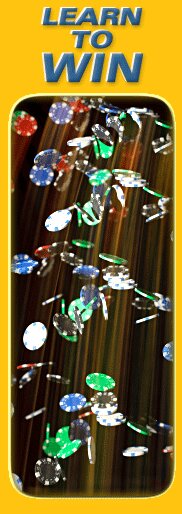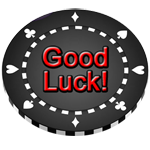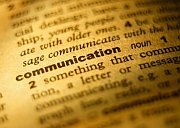Picking Poker Tournaments
Picking Poker Tournaments and 10 Rules for Successful Online Poker Play is the focus for this lesson.
To assist you in making the best choices, this lesson includes poker tournament tips for single table, multi table, heads up and registration/entry fees.
If you have not joined in poker tournaments before, don’t think that the hand type and value that you usually play in ring poker games are equal to what you face in tournaments, particularly with no-limit Hold ’Em and pot-limit Omaha High.
If you are familiar with those ring games, join several poker tournaments with the lowest stakes or watch a few games with the stakes you like to play to get a better feel for what is essentially a ‘playable’ hand. Believe me, it will save you money.
Except for heads-up tournaments that are comparatively new within the poker world, many publications cover picking poker tournaments for live poker. All the strategies apply to the online poker world.
Picking Poker Tournaments: Single Table
The game dynamic in single table changes as players are busted out from the table thus creating some exciting action. If you are caught by the bad beat, as you unavoidably will at some time, then you have not poured hours playing in a single game just to get your cash taken away at the turn of a very bad card. Since you only play at one table of players, you win cash more often.
The bad side of single-table tourneys is that you may not win as much as you expect in larger tourneys. The top prize, usually, is your entry fee times five.
Picking Poker Tournaments: Multi Table
If you are hunting down the megabucks and you do not mind working through long dry spells, multi-table tourneys should be your pick.
An advantage is that the general table strategy does not have to change significantly, because these poker tournaments can be so big that it takes many hours for table size to diminish--even by 1 player.
In the live poker world, during multi-table tournaments you need to watch your stack size, both relative to the tourney at large and to your table. One benefit about the online poker world is that every site calculates the average stack size during the tournament to give everybody an easy way to evaluate how they are doing compared to your opponents. This benefit is a more effective indicator than comparing your current stack standing with the current top dog player. All this valuable information is usable to you in the tournament lobby where you signed up.
More information about chip standing is covered in the next lesson.
Picking Poker Tournaments: Heads Up
If you pick poker tournaments--multi-table, you will need to focus on your heads-up playing skills. Although you may not need them too often, it makes a vast difference in the probability of success as first position often takes home twice as much prize money as second position.
Heads-up playing skills are critical for single-table tournaments because you have a 1-in-5 possibility of playing a heads up game.
Picking Poker Tournaments: Registration/Entry Fees
Most poker tournaments pass on a set amount of the registration fee to entrants--approximately 10% for the entry fee. The poker site treats the registration fee as the rake for the tournament.
It means you typically need to play 10% better than average players just to break even. However, you may find ways to put chance in your favor. Find tournaments that have guaranteed or added funds. They are commonly found at lesser-populated poker sites that seek to gain more players. For instance, you may find a tourney with a $1 registration fee, a $10 entry fee, and $100 added to the prize pool.
If only twenty people join in the tournament, the site essentially puts in another $5 for each player. It means that while you put in as much as $11 to join, the amount put in for each player is $15 (the $10 entry fee plus $5 the site adds for each player). You are in a profitable position since every player on average earns $4, ($15 paid to each player less the $11 for sign up).
Always look for these deals when picking poker tournaments as they are rivaled only by the free-roll games.
In order to encourage the first entrants to join, tournament sites often provide guaranteed prize pools. It represents the minimum amount of cash that the site distributes among the successful participants. If the amount of entry fees does not add up to the guarantee, then the site will add funds to reach that goal.
A case where the cash going out of a tourney is larger than the cash coming in with registration/entry fees is known as positive expectation.
To ensure that you are in a positive expectation situation when picking poker tournaments, check that the total prize pool is larger than all registration and entry fees combined; then join the tournament close to the cut-off time. Avoid a sudden surge of people at the end that may eliminate your potential profits.
Positive expectation tournaments occur frequently in Stud and Omaha. Due to their inherent edge, those tournaments are definitely worth the time and effort to join.
10 Rules for Successful Online Poker Play
While picking poker tournaments is important, so too are the picks you make for online poker play. Here are 10 tips towards your success.
1) Picking a Casino: You should sign on for at least five online casinos so you jump from one casino to another during a playing session. Choose your picks based on the online casino reputation, quick payouts, deposits and exceptional customer support.
2) Picking a Betting Limit: Specifically $1/2, $2/4 or $5/10 blinds. It is a fact that high-stakes limit tables are not the place to make a profit—rather the opposite is true. Your poker playing return on investment is best at medium limit tables.
3) Pick Your Stake: All poker players must have 50 to 100 times the Big Blind. Any less and your chances of making a profit decrease. However, the benefit of more money not only improves your table reputation, it also intimidates weaker players.
4) Picking a Table: Spend at least 15 minutes watching the poker play and players at each table. Review your notes if familiar players are present.
Explore at least three tables before you start, then pick the loosest table. A winning strategy when playing Holdem is to play tight in loose games and play only loose games. If all tables are tight, it is wise to go back to Step 1.
5) Picking a Position at the Table: Seek out the tightest player at the table and arrange to be seated to the left of that player.
6) Take Players Notes: Record playing styles and types by asking these questions. Does he/she raise before the flop? Do they fold before the flop? What is the size of his stake? Does he/she react quickly or slowly when his/her turn comes up? What kind of cards did she play on? Some online poker rooms offer a Player Notes option for your convenience.
7) Turn Off Chat: For total concentration and to avoid diversions, it is best to turn off Chat when playing poker, considering that your bankroll is at stake.
8) Turn Off Other Distractions: Although distractions are part of life for most people, this is the time to turn them off and focus on making money. Let your opponents listen to music, have or snack or catch up on the latest app while they wonder why and when their stacks disappeared.
9) Play Tight: Here is where your knowledge and skills come into play. Learn the rules, understand the odds and bet like a 'shark', rather than a 'fish'. Optionally, this may be the time for picking poker tournaments, especially with low entry fees.
10) Play for 1 Hour: Winning or losing, you should take a break allowing you to keep sharper than other players who are hanging on for that one last win.
Utilizing these rules is sure to improve your poker play and ability for picking poker tournaments. Good Luck at the Tables!
Single Table, Multi Table Poker Tournaments, Chip Standing is next
OR
From Picking Poker Tournaments lesson, return to Learn Poker Games
OR
Continue with Online Gambling Guide
Gambling Teachers Home
GT is attentive about getting the word out about our free programs, lessons and add-ons offered, however, we ask your assistance and consideration in promoting us.
Click link below that reads, "Enjoy this page? Please pay it forward. Here's how..." to add a link to your site, blog or personal page.





